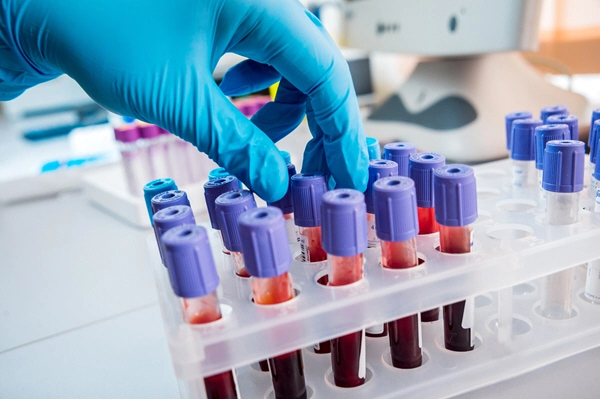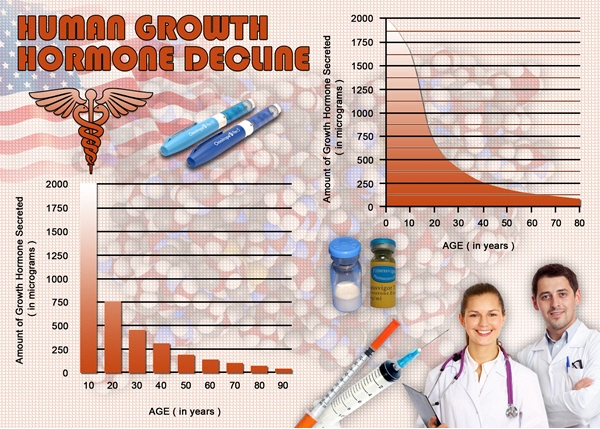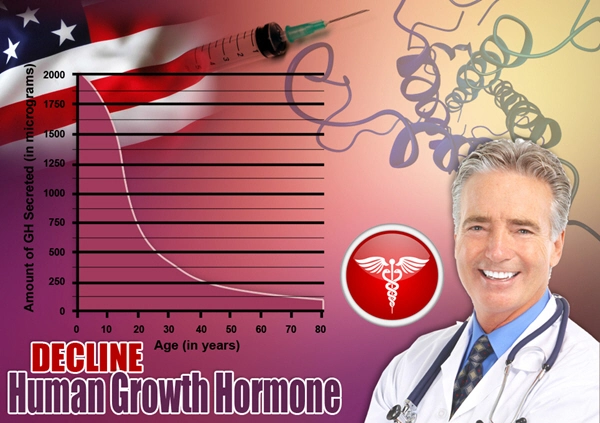Introduction to Low Libido
Low libido, or a diminished sexual desire, is a prevalent concern among American men, affecting their quality of life and relationships. This condition can stem from a variety of physiological and psychological factors, making it a complex issue to address. Understanding the underlying causes is crucial for effective management and treatment.
Physiological Causes of Low Libido
Several physiological factors can contribute to low libido in men. Hormonal imbalances, particularly low testosterone levels, are often at the forefront of this issue. Testosterone plays a pivotal role in male sexual health, influencing libido, erectile function, and overall sexual performance. Aging naturally leads to a decline in testosterone production, but other conditions such as hypogonadism can exacerbate this effect.
Chronic illnesses, such as diabetes and heart disease, can also impact sexual desire. These conditions can lead to vascular issues, reducing blood flow to the penis and impairing erectile function, which in turn can diminish sexual interest. Additionally, medications used to treat these chronic conditions, such as antihypertensives and antidepressants, can have side effects that include reduced libido.
Psychological Factors Influencing Libido
The mind plays a significant role in sexual desire, and psychological factors can greatly influence libido. Stress, anxiety, and depression are common culprits that can lead to a decreased interest in sex. The pressures of modern life, including work-related stress and financial worries, can take a toll on mental health, subsequently affecting sexual desire.
Relationship issues, such as unresolved conflicts or a lack of emotional intimacy, can also contribute to low libido. When men feel disconnected from their partners, their sexual desire may wane. It is essential for couples to communicate openly about their sexual needs and concerns to maintain a healthy sexual relationship.
Lifestyle Factors and Low Libido
Lifestyle choices play a critical role in sexual health. Poor diet, lack of exercise, and substance abuse can all contribute to low libido. Obesity, for instance, is linked to lower testosterone levels and can lead to erectile dysfunction, further reducing sexual desire. Regular physical activity, on the other hand, can boost testosterone levels and improve overall sexual health.
Substance abuse, including excessive alcohol consumption and drug use, can have a detrimental effect on libido. Alcohol is a depressant that can impair sexual function and reduce testosterone levels. Similarly, drugs such as marijuana and opioids can interfere with sexual desire and performance.
Treatment Options for Low Libido
Addressing low libido requires a multifaceted approach that considers both physiological and psychological factors. For men with low testosterone levels, hormone replacement therapy may be an effective treatment option. This therapy can help restore testosterone levels to a normal range, thereby improving libido and sexual function.
Psychological counseling can be beneficial for men struggling with stress, anxiety, or relationship issues. Cognitive-behavioral therapy (CBT) and sex therapy can help individuals and couples address underlying emotional concerns and improve their sexual relationship.
Lifestyle modifications are also crucial in managing low libido. Adopting a healthy diet, engaging in regular exercise, and reducing alcohol and drug use can significantly improve sexual health. Additionally, maintaining open communication with partners about sexual desires and concerns can enhance emotional intimacy and boost libido.
Conclusion
Low libido is a common and complex issue among American men, influenced by a variety of physiological, psychological, and lifestyle factors. By understanding the underlying causes and exploring effective treatment options, men can take proactive steps to improve their sexual health and enhance their quality of life. Addressing this issue openly and seeking appropriate medical and psychological support can lead to a more fulfilling and satisfying sexual experience.

- Revitalizing Passion: Effective Strategies for Combating Low Libido in Long-term Relationships [Last Updated On: February 21st, 2025] [Originally Added On: February 21st, 2025]
- Revolutionizing the Landscape of Sexual Health: Addressing Low Libido through Medical Science [Last Updated On: March 2nd, 2025] [Originally Added On: March 2nd, 2025]
- Comprehensive Guide to Enhancing Male Libido: Understanding Causes and Exploring Treatment Options [Last Updated On: March 3rd, 2025] [Originally Added On: March 3rd, 2025]
- Understanding Low Libido in Men: Causes, Impact, and Treatments [Last Updated On: March 4th, 2025] [Originally Added On: March 4th, 2025]
- Exploring Physical Causes and Treatments for Low Libido in American Males [Last Updated On: March 4th, 2025] [Originally Added On: March 4th, 2025]
- Exploring Hormonal Influences on Male Libido and Sexual Health [Last Updated On: March 5th, 2025] [Originally Added On: March 5th, 2025]
- Comprehensive Guide to Understanding and Managing Low Libido in Men [Last Updated On: March 6th, 2025] [Originally Added On: March 6th, 2025]
- Unraveling the Link Between Anxiety and Diminished Sexual Desire in American Males [Last Updated On: March 6th, 2025] [Originally Added On: March 6th, 2025]
- Understanding and Managing Post-Menopausal Libido Decline: A Comprehensive Guide for Women [Last Updated On: March 7th, 2025] [Originally Added On: March 7th, 2025]
- Understanding and Managing Low Libido in Men: Causes, Impacts, and Strategies for Improvement [Last Updated On: March 8th, 2025] [Originally Added On: March 8th, 2025]
- The Interplay Between Mental Health and Libido: Understanding and Addressing Low Sexual Desire [Last Updated On: March 9th, 2025] [Originally Added On: March 9th, 2025]
- Unveiling the Link Between Chronic Diseases and Low Libido in American Males [Last Updated On: March 12th, 2025] [Originally Added On: March 12th, 2025]
- Exploring Effective Medical Therapies for Low Libido in Postpartum American Women [Last Updated On: March 13th, 2025] [Originally Added On: March 13th, 2025]
- Revolutionizing Intimacy: Cutting-Edge Medical Treatments for Low Libido in American Males [Last Updated On: March 15th, 2025] [Originally Added On: March 15th, 2025]
- Low Libido and Depression in American Males: Causes, Impacts, and Holistic Treatments [Last Updated On: March 18th, 2025] [Originally Added On: March 18th, 2025]
- Psychological Factors Impacting Low Libido in American Males: Insights and Solutions [Last Updated On: March 18th, 2025] [Originally Added On: March 18th, 2025]
- Medication-Induced Low Libido in American Males: Causes, Mechanisms, and Management Strategies [Last Updated On: March 18th, 2025] [Originally Added On: March 18th, 2025]
- Low Libido in American Men: Health Risks and Importance of Medical Advice [Last Updated On: March 19th, 2025] [Originally Added On: March 19th, 2025]
- Exploring Causes and Treatments for Low Libido in American Men [Last Updated On: March 20th, 2025] [Originally Added On: March 20th, 2025]
- Natural Supplements for Low Libido in American Males: Ginseng, Maca, L-Arginine [Last Updated On: March 21st, 2025] [Originally Added On: March 21st, 2025]
- Medication-Induced Low Libido: Causes, Mechanisms, and Management Strategies for American Men [Last Updated On: March 21st, 2025] [Originally Added On: March 21st, 2025]
- Understanding and Addressing Low Libido in American Males: Causes and Solutions [Last Updated On: March 21st, 2025] [Originally Added On: March 21st, 2025]
- Innovative Treatments for Low Libido in Men: Hormonal, Psychological, and Lifestyle Approaches [Last Updated On: March 22nd, 2025] [Originally Added On: March 22nd, 2025]
- Understanding and Boosting Low Libido in American Males: A Holistic Approach [Last Updated On: March 22nd, 2025] [Originally Added On: March 22nd, 2025]
- Chronic Illness Impact on Male Libido: Understanding and Managing Sexual Health [Last Updated On: March 22nd, 2025] [Originally Added On: March 22nd, 2025]
- Exploring Medical Causes and Treatments for Low Libido in American Males [Last Updated On: March 22nd, 2025] [Originally Added On: March 22nd, 2025]
- Low Libido in American Males During Partner's Lactation: Causes and Management Strategies [Last Updated On: March 22nd, 2025] [Originally Added On: March 22nd, 2025]
- Hyperthyroidism and Low Libido in American Males: Mechanisms, Diagnosis, and Treatment [Last Updated On: March 23rd, 2025] [Originally Added On: March 23rd, 2025]
- Diabetes and Low Libido in American Males: Mechanisms, Management, and Future Treatments [Last Updated On: March 23rd, 2025] [Originally Added On: March 23rd, 2025]
- Effective Treatments for Low Libido in American Males: Hormonal, Pharmacological, and Psychological Approaches [Last Updated On: March 23rd, 2025] [Originally Added On: March 23rd, 2025]
- Postpartum Libido Challenges for American Males: Causes and Strategies for Revival [Last Updated On: March 23rd, 2025] [Originally Added On: March 23rd, 2025]
- Understanding and Addressing Low Libido in American Men: Causes, Impacts, and Treatments [Last Updated On: March 23rd, 2025] [Originally Added On: March 23rd, 2025]
- Low Libido in Men: Causes, Medical Solutions, and Lifestyle Changes [Last Updated On: March 23rd, 2025] [Originally Added On: March 23rd, 2025]
- Navigating Low Libido in American Men: Medical, Psychological, and Holistic Approaches [Last Updated On: March 23rd, 2025] [Originally Added On: March 23rd, 2025]
- Understanding and Addressing Low Libido in Women Over 50: A Guide for Men [Last Updated On: March 23rd, 2025] [Originally Added On: March 23rd, 2025]
- Understanding and Treating Low Libido in American Men: Causes and Solutions [Last Updated On: March 24th, 2025] [Originally Added On: March 24th, 2025]
- Low Libido in Young American Males: Physiological, Psychological, and Lifestyle Factors [Last Updated On: March 24th, 2025] [Originally Added On: March 24th, 2025]
- Understanding Low Libido in American Males: Causes, Implications, and Treatment Options [Last Updated On: March 24th, 2025] [Originally Added On: March 24th, 2025]
- Sudden Low Libido in American Males: Causes, Diagnosis, and Treatment Strategies [Last Updated On: March 24th, 2025] [Originally Added On: March 24th, 2025]
- Managing Low Libido in Male Surgical Patients: Causes, Diagnosis, and Treatment Strategies [Last Updated On: March 24th, 2025] [Originally Added On: March 24th, 2025]
- Chronic Pain and Low Libido in American Males: Medical Links and Holistic Treatments [Last Updated On: March 25th, 2025] [Originally Added On: March 25th, 2025]
- Managing Age-Related Low Libido in American Men: Medical and Lifestyle Approaches [Last Updated On: March 26th, 2025] [Originally Added On: March 26th, 2025]
- Low Libido in American Males: Causes, Diagnosis, and Effective Treatment Strategies [Last Updated On: March 26th, 2025] [Originally Added On: March 26th, 2025]
- Low Libido in Men: Causes, Impacts, and Seeking Effective Treatments [Last Updated On: March 26th, 2025] [Originally Added On: March 26th, 2025]
- Understanding and Treating Low Libido in American Males: Causes and Solutions [Last Updated On: March 26th, 2025] [Originally Added On: March 26th, 2025]
- Effective Treatments for Low Libido in Men: Medical and Lifestyle Approaches [Last Updated On: March 26th, 2025] [Originally Added On: March 26th, 2025]
- Low Libido in American Males: Treatments, Risks, and Holistic Management Strategies [Last Updated On: March 26th, 2025] [Originally Added On: March 26th, 2025]
- Low Libido and Unhappiness in American Males: A Comprehensive Medical Analysis [Last Updated On: March 26th, 2025] [Originally Added On: March 26th, 2025]
- Managing Low Libido in American Males: Causes, Treatments, and Emerging Therapies [Last Updated On: March 27th, 2025] [Originally Added On: March 27th, 2025]
- Understanding and Treating Low Libido in American Men: A Comprehensive Guide [Last Updated On: March 27th, 2025] [Originally Added On: March 27th, 2025]
- Hypertension's Impact on Male Libido: Physiological and Psychological Connections [Last Updated On: March 27th, 2025] [Originally Added On: March 27th, 2025]
- Low Libido in American Women: A Rising Epidemic? [Last Updated On: March 27th, 2025] [Originally Added On: March 27th, 2025]
- Managing Low Libido in American Males Post-Chemotherapy: Medical and Lifestyle Approaches [Last Updated On: March 27th, 2025] [Originally Added On: March 27th, 2025]
- Strategies to Boost Low Libido in American Males: Medical and Lifestyle Approaches [Last Updated On: March 27th, 2025] [Originally Added On: March 27th, 2025]
- Alcohol's Impact on Libido: Hormonal, Neurological, and Psychological Effects in American Males [Last Updated On: March 27th, 2025] [Originally Added On: March 27th, 2025]
- Low Libido in American Male Athletes: Medical Insights and Management Strategies [Last Updated On: March 27th, 2025] [Originally Added On: March 27th, 2025]
- Post-Surgery Low Libido in Men: Causes, Impacts, and Recovery Strategies [Last Updated On: March 28th, 2025] [Originally Added On: March 28th, 2025]
- Low Libido in New Fathers: Causes, Impacts, and Solutions Post-Pregnancy [Last Updated On: March 28th, 2025] [Originally Added On: March 28th, 2025]
- Exploring Bidirectional Links Between Low Libido and Weight Gain in American Males [Last Updated On: March 28th, 2025] [Originally Added On: March 28th, 2025]
- Understanding and Treating Low Libido in American Men: A Holistic Approach [Last Updated On: March 28th, 2025] [Originally Added On: March 28th, 2025]
- Exploring Causes and Solutions for Low Libido in American Males [Last Updated On: March 28th, 2025] [Originally Added On: March 28th, 2025]
- Low Libido in American Males: Causes, Lifestyle Solutions, and Professional Help [Last Updated On: March 29th, 2025] [Originally Added On: March 29th, 2025]
- Revitalizing Male Libido: Hormonal, Lifestyle, and Psychological Strategies [Last Updated On: March 29th, 2025] [Originally Added On: March 29th, 2025]
- Chronic Low Libido in American Males: Medical Signs and Underlying Causes [Last Updated On: March 30th, 2025] [Originally Added On: March 30th, 2025]
- Strategies to Combat Low Libido in Healthy American Males: A Comprehensive Approach [Last Updated On: March 31st, 2025] [Originally Added On: March 31st, 2025]
- Understanding Low Libido in Women: Medical Insights for American Males [Last Updated On: April 1st, 2025] [Originally Added On: April 1st, 2025]
- Medical Causes and Solutions for Low Libido in American Men [Last Updated On: April 1st, 2025] [Originally Added On: April 1st, 2025]
- Antidepressants and Low Libido in Men: Medical Insights and Management Strategies [Last Updated On: April 1st, 2025] [Originally Added On: April 1st, 2025]
- Rising Low Libido in American Males: Causes, Impacts, and Restoration Strategies [Last Updated On: April 6th, 2025] [Originally Added On: April 6th, 2025]
- Medical Procedures Impacting Libido in American Men: Causes and Management Strategies [Last Updated On: April 6th, 2025] [Originally Added On: April 6th, 2025]
- Understanding Low Libido in American Men: Causes and Holistic Solutions [Last Updated On: April 7th, 2025] [Originally Added On: April 7th, 2025]
- Exploring Causes and Solutions for Low Libido in American Males [Last Updated On: April 8th, 2025] [Originally Added On: April 8th, 2025]
- Understanding Low Libido: Causes, Treatments, and Future Hope for American Men [Last Updated On: April 8th, 2025] [Originally Added On: April 8th, 2025]
- Medical Reasons for Persistent Low Libido in American Men: A Comprehensive Overview [Last Updated On: April 9th, 2025] [Originally Added On: April 9th, 2025]
- Medical Factors Affecting Low Libido in Women Under 40: Insights for American Males [Last Updated On: April 9th, 2025] [Originally Added On: April 9th, 2025]
- Managing Low Libido in Men: Causes, Diagnosis, and Multifaceted Treatment Approaches [Last Updated On: April 9th, 2025] [Originally Added On: April 9th, 2025]
- Understanding and Managing Low Libido in American Males: A Holistic Approach [Last Updated On: April 10th, 2025] [Originally Added On: April 10th, 2025]
- Effective Solutions for Low Libido in Men: Medical and Lifestyle Approaches [Last Updated On: April 10th, 2025] [Originally Added On: April 10th, 2025]
- Medical Insights into Low Libido: Causes, Diagnosis, and Treatments for American Men [Last Updated On: April 11th, 2025] [Originally Added On: April 11th, 2025]
- Understanding and Diagnosing Low Libido in American Males: A Comprehensive Guide [Last Updated On: April 15th, 2025] [Originally Added On: April 15th, 2025]



List of USA state clinics - click a flag below for blood testing clinics.
Word Count: 592



















































